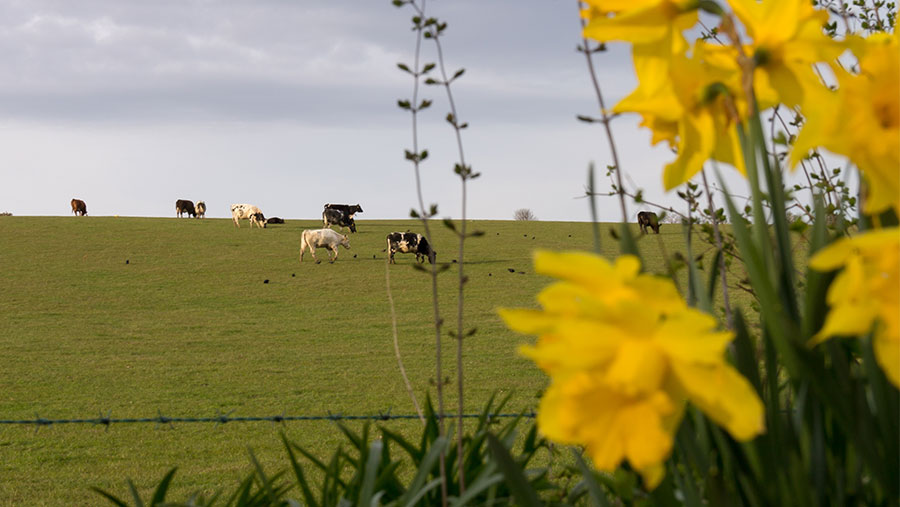Cows fed daffodil extract may cut methane emissions by third
 © Jazzygeoff/Adobe Stock
© Jazzygeoff/Adobe Stock A daffodil extract added to livestock feed could reduce methane emissions from dairy cows by 30% if a project at Scotland’s Rural College (SRUC) is successful.
Daffodils produce a compound that prevents ruminants from generating methane.
Research at SRUC has shown that adding an extract from the flower to livestock feed reduced methane in artificial cow stomachs by 96%.
See also: £2.9m project aims for lower methane emissions from sheep
The scientists involved in the four-year trial hope it will reduce emissions from real cows by more than one-third.
The daffodils are being grown on farms in Wales and England.
Livestock farmer Kevin Stephens in Fedwlydan, Glasbury on Wye, has been growing daffodils for 14 years, principally to extract a compound known to slow the progress of Alzheimer’s disease and vascular dementia.
Kevin describes the research as a “game changer” and one which could make a huge difference to the livestock industry.
“There are governments across the world currently trying to meet net zero by either taxing livestock farmers or putting quotas on the number of livestock you can have because of the methane by-product,” he said.
“This gives us a very real opportunity to change that story.”
Emissions
It is estimated that half of UK agriculture’s methane emissions come from cows – globally, they are thought to be responsible for 14% of all greenhouse gases.
The SRUC research has involved developing a supply chain of daffodils and extracting the desired chemicals before testing that the additive is safe for animals and humans.
In the final stage of the project, the scientists will work with farmer partners across England and Wales to prove the additive is effective in reducing methane production and feed costs.
